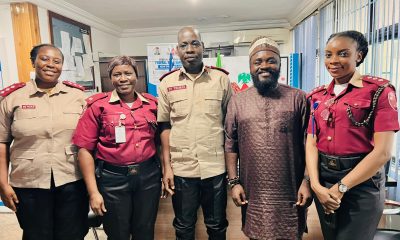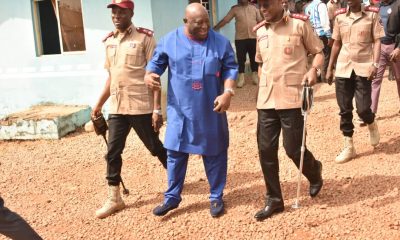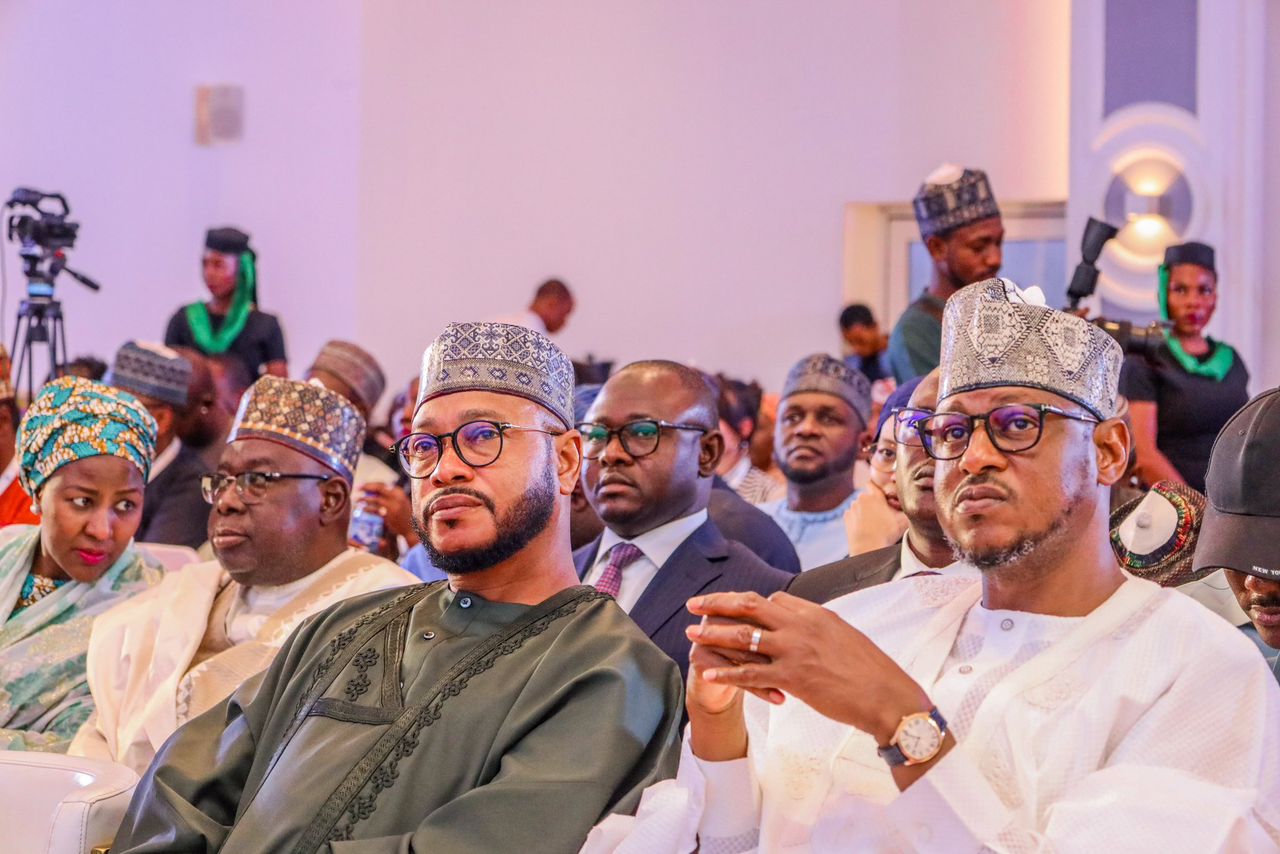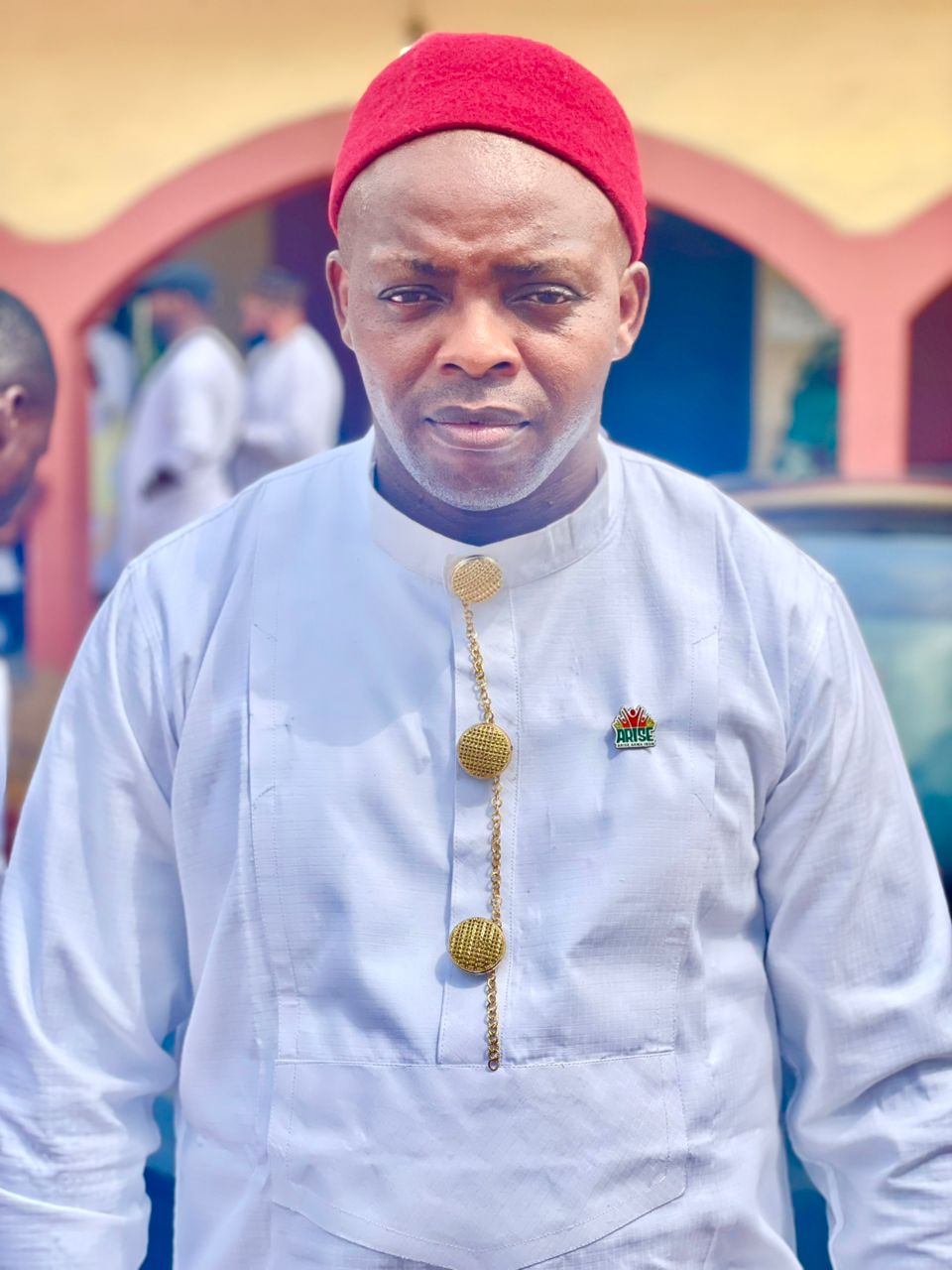society
Dissecting Corps Marshal’s welfare-driven leadership and the pivotal evolution of a new era in FRSC

Dissecting Corps Marshal’s welfare-driven leadership and the pivotal evolution of a new era in FRSC
In recent times, Nigeria has witnessed a surge of transformation across various sectors, and perhaps one of the most vital yet underrated sectors witnessing this shift is road transportation sector and road safety management. The Federal Road Safety Corps (FRSC), Nigeria’s lead agency for road safety administration and traffic management, under the amiable leadership of Corps Marshal Shehu Mohammed, is undergoing what can only be described as a pivotal evolution. This “Wind of Change” sweeping through the FRSC is not just a symbolic shift but a substantive movement that promises to redefine the nation’s approach to road safety, reduce fatalities, and usher in a new era of accountability and efficiency.
Since the inception of the Federal Road Safety Corps in 1988, the significance of employee welfare as a cornerstone of effective leadership has never been more apparent. The present Corps Marshal, Shehu Mohammed, a proactive leader known for his progressive approach, is reshaping this narrative by prioritizing staff welfare, not just as a supportive measure but as a transformative leadership strategy. His commitment is revolutionizing organisational dynamics and redefining the potential of welfare programmes to foster loyalty, enhance productivity, and build an environment where employees thrive.
Right from the onset in FRSC, the overwhelming influence of traditional leadership models often undervalued employee welfare, focusing predominantly on productivity and targets. However, as the corporate landscape shifts, leaders like Shehu Mohammed are recognising that employee well-being is a fundamental component of sustainable success. Mohammed understands that welfare policies are more than mere benefits; they’re investments in the people who drive the organisation forward. His leadership philosophy embodies the belief that employee welfare is directly linked to performance, satisfaction, and the overall health of an organization.
One of the most critical strides recorded in the history of the Corps in that regard is the recent decision taking by Shehu Mohammed, which is the harmonisation of Marshal ranks to their equivalent in the Officers cadre. This decision of harmonisation of ranks could be said to be one of the most courageous decisions ever taken by any Corps Marshal, where about 1395 personnel of the Marshal cadre were converted into the Officers cadre in line with the provisions of the public service rules. This marks the first time such milestone could be recorded in the Corps.
For the sake of clarity, the FRSC’s rank structure is divided into two main categories: commissioned and non-commissioned officers. The commissioned officers include: the rank of Assistant Route Commander to the rank of Deputy Corps Marshal. On the other hand, non-commissioned officers comprise personnel of the rank of Road Marshal Assistant III to the rank of Chief Inspector. In addition, while the Commissioned Officers are staff who were employed with a minimum of a first degree certificate, the later are those recruited with a minimum of an ‘O’ level certificate or equivalent.
By the provision of the public service extant regulations, staff who were recruited as non-commissioned officers that later proceeded to acquire more education in the course of their careers, could be converted into the Officers cadre in line with standard operating procedures on further studies and career progression.
While the initial prominent attempt to tackle this issue of harmonisation in 2021 could not hit the nail on the head as only staff with HND at the point of entry were considered, the Shehu Mohammed’s harmonisation took the bull by the horn. It cleared the backlogs and ensured that all concerned are not only converted, but the ranks harmonized to, matched their equivalent in the Officers cadre.
This harmonization of ranks which saw the officers cadre strengthened with 646 Assistant Route Commanders, 407 Deputy Route Commanders, 109 Route Commanders, and 233 Superintendent Route Commanders is expected to bring about a more streamlined and efficient organisational structure, promoting better communication and collaboration among officers and men.
To this end, it is safe to say that Shehu Mohammed’s approach to welfare enhancement is distinctive in that it integrates welfare into the core strategy of leadership. Rather than treating welfare initiatives as optional add-ons, he views them as integral to the organisation’s mission and objectives. His programmes go beyond rhetoric. It encompasses career development opportunities, mental health support, flexible working arrangements, and other initiatives that address the holistic needs of employees.
Mohammed’s welfare model is designed to empower employees, offering resources that support both their professional and personal lives. This approach has had a ripple effect, fostering a culture of trust, mutual respect, and loyalty. Today, FRSC personnel feel valued, knowing that the Corps Marshal and his Management prioritise their well-being, and this has led to higher level of commitment, and a more dedicated workforce.
One of the key outcomes of Shehu Mohammed’s welfare-driven leadership is the transformation of organisational culture. By prioritizing employee welfare, he has cultivated an environment where transparency, communication, and collaboration thrive. Employees are more engaged, more motivated, and are willing to go the extra mile, knowing their efforts are appreciated and supported.
Additionally, Mohammed’s leadership has encouraged employees to take ownership of their roles. His welfare programs include upskilling initiatives that allow staff members to pursue further training and development within the organization. In the last few months for instance, over 8000 staff have been trained comprising of arresting Marshals, officers in different expertise and professionalism, and Members of Management. By investing in their growth, Mohammed ensures that his team has access to career advancement opportunities and feels a deeper connection to the organisation’s success.
Mohammed’s approach to staff welfare isn’t just an isolated example but a potential model for sustainable leadership across agencies of government. By aligning his welfare strategies with organisational goals, he has demonstrated that taking care of employees is not only ethically responsible but also a smart move that could trigger speedy realisation of the corporate mandate of the Corps. His initiatives have led to measurable improvements in performance and morale, showing that welfare and productivity are not mutually exclusive but, in fact, mutually reinforcing.
As organisations worldwide grapple with the actualisation of their vision and mission, Mohammed’s welfare-centered leadership provides a blueprint for creating more resilient and successful workforce. His model emphasises that when leaders invest in their people, they are, in effect, investing in the longevity and prosperity of their organisations.
Shehu Mohammed stands as an exemplary leader who is changing the narrative by redefining what it means to lead. Through his commitment to staff welfare enhancement, he has shown that true leadership is not about authority but about service, care, and the courage to prioritize the needs of others. Mohammed’s vision is a testament to the power of compassionate leadership and serves as a reminder that when employees are genuinely valued, they bring their best to the table, benefitting both themselves and the organization.
In an era where the demand for compassionate and effective leadership is paramount, Shehu Mohammed’s model of welfare-driven leadership shines as a beacon of hope and progress. His transformative approach continues to inspire his contemporaries, proving that prioritising employee welfare is not only feasible but essential for a thriving, sustainable future.
On this note, it’s my believe that this new era for the FRSC should and would inspire Nigerians to reimagine their relationship with the lead agency. It should propel a shift in perspective—one that understands safety as not merely the responsibility of FRSC alone, but as a shared duty and a national priority. As this Wind of Change sweeps through the Corps, the nation stands on the precipice of transformation, where lives are preserved, roads are safer, and a culture of accountability prevails.
Bisi Kazeem, fsi, anipr, MNIM,
A retired Deputy Corps Marshal, veteran road safety professional and a public relations expert, writes from Lagos, Nigeria.
society
Zamfara State Launches Landmark IDP Policy and Action Plan as UNDP, Northwest Forum Pledge Support
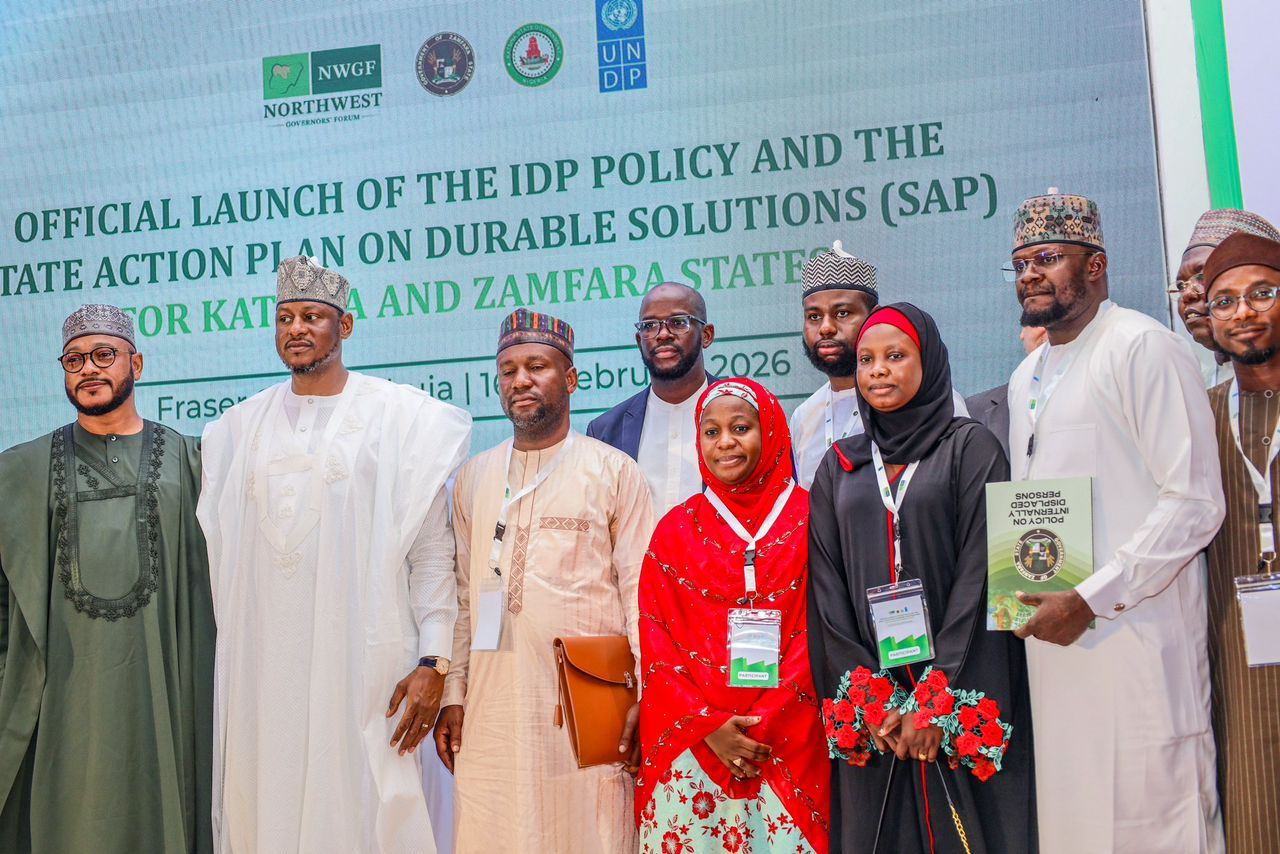
Zamfara State Launches Landmark IDP Policy and Action Plan as UNDP, Northwest Forum Pledge Support
In a significant move to address the humanitarian crisis wrought by banditry and internal displacement, the Executive Governor of Zamfara State, His Excellency Dr. Dauda Lawal, has officially launched a comprehensive policy framework and action plan aimed at delivering durable solutions for internally displaced persons (IDPs) in the state.
The Governor attended the joint launch ceremony for the IDP Policy and the State Action Plan on Durable Solutions, an initiative simultaneously rolled out for both Katsina and Zamfara States in the nations capital Abuja today Feburary 16, 2026. The event marks a pivotal moment in the region’s approach to managing displacement, shifting from emergency response to long-term, sustainable recovery.
The ambitious programme is the product of a strategic collaboration between the Northwest Governors Forum and the United Nations Development Programme (UNDP). This partnership underscores a unified, regional acknowledgment that the challenges of displacement require coordinated, multi-state solutions that address root causes and build lasting resilience.
For Zamfara State, which has borne the brunt of years of insecurity, the new policy is being hailed not merely as a bureaucratic formality, but as a binding social contract with its most vulnerable citizens. It establishes a clear roadmap for restoring the dignity of displaced families, with a laser focus on rebuilding shattered communities and creating viable pathways for safe return, peaceful resettlement, and sustainable reintegration.
The framework goes beyond temporary relief, outlining concrete strategies to help displaced populations not just survive, but ultimately thrive in safety. It seeks to transform the lives of those who have lost their homes and livelihoods by ensuring they are active participants in the state’s recovery.
Speaking at the launch, Governor Lawal reaffirmed the administration’s unwavering commitment to translating the policy document into tangible, measurable impact on the ground. “Under my leadership, we remain committed to ensuring that this framework translates into measurable impact for our people.”
The launch signals a new chapter for Zamfara, one focused on healing and forward momentum. By anchoring the response in a durable solutions framework, the state government aims to build systemic resilience, strengthen the capacity of local institutions to manage future crises, and ultimately, shape a more secure, stable, and inclusive future for all residents of Zamfara State.
society
Bright Brain Community Initiative, TMRI Host International Women’s Conference on Gender-Based Violence
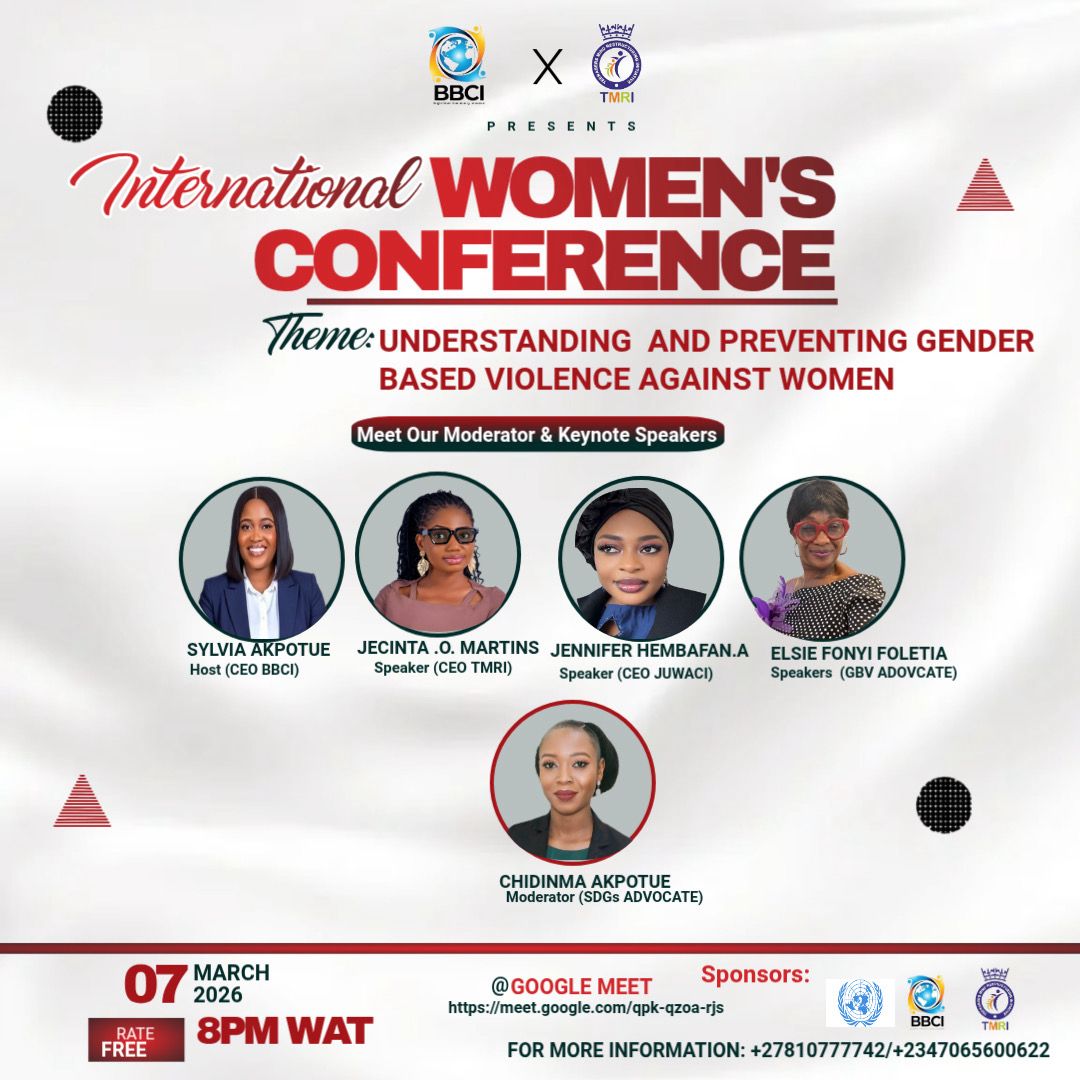
Bright Brain Community Initiative, TMRI Host International Women’s Conference on Gender-Based Violence
society
A LEGACY OF EXCELLENCE: Wisdom Benson Celebrates 44 Years of Entrepreneurial Triumph
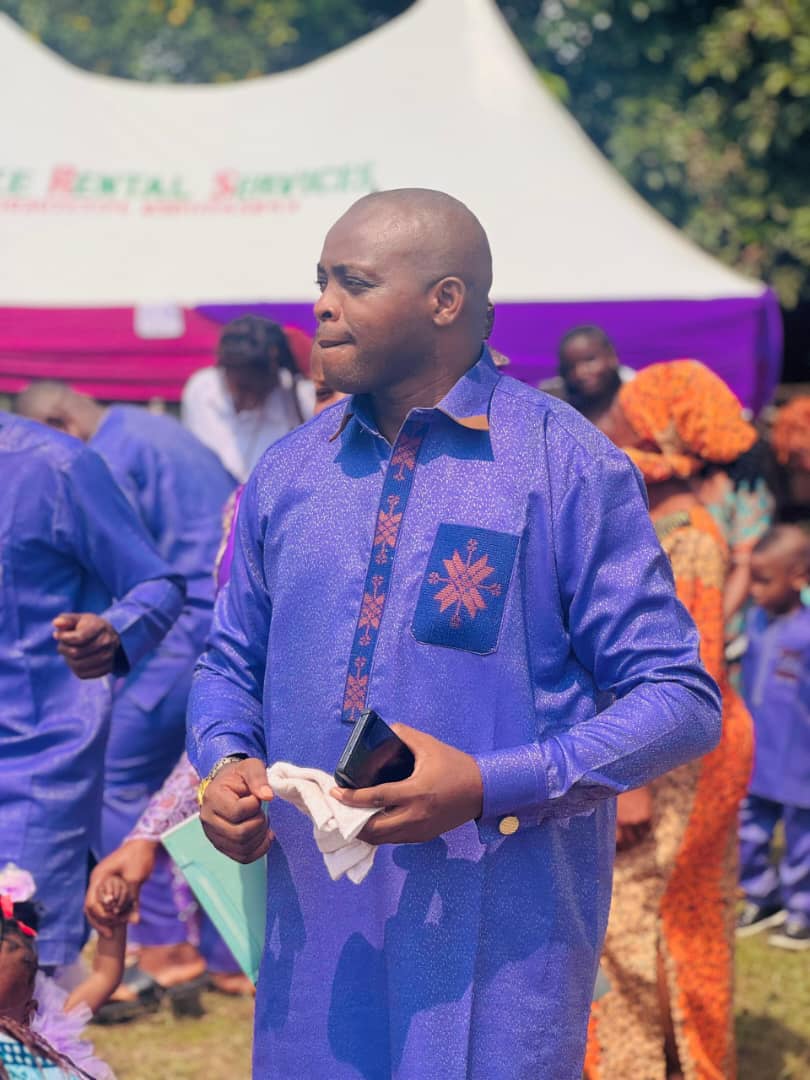
A LEGACY OF EXCELLENCE: Wisdom Benson Celebrates 44 Years of Entrepreneurial Triumph.
Wisdom Benson, the visionary CEO of Wisic Services, is celebrating a major milestone – his 44th birthday on 18th February! A seasoned entrepreneur, accomplished networker, and dedicated leader, Wisdom has spent over 20 years driving business growth, empowering individuals, and shaping the future of entrepreneurship in Nigeria and beyond.
As the helm of Wisic Services, Wisdom has demonstrated exceptional leadership, guiding his team with vision, resilience, and courage. His entrepreneurial journey is a testament to the power of consistency, integrity, and strategic thinking. Under his leadership, Wisic Services has become a beacon of innovation and excellence, making a lasting impact in the industry.
Wisdom’s commitment to mentoring young entrepreneurs and promoting businesses has inspired countless individuals. He has been a driving force behind the success of many startups and SMEs, providing them with the necessary tools and guidance to thrive.
“Every year is not just an addition of time, but an addition of wisdom, strength, and purpose. The journey continues,” Wisdom said ahead of his birthday. “I am grateful for the opportunity to make a difference in the lives of others, and I look forward to continuing to inspire and empower the next generation of entrepreneurs.”
As we celebrate Wisdom Benson’s 44th birthday on 18th February, we honor a man whose story inspires determination, excellence, and forward thinking. His legacy is a testament to the power of hard work, dedication, and passion.
“We are thrilled to celebrate Wisdom’s milestone birthday and acknowledge his contributions to the business community,” said a spokesperson for Wisic Services. “His vision, leadership, and commitment to excellence are an inspiration to us all, and we look forward to many more years of success and impact.”
Here’s to many more years of expanded territories, deeper impact, and greater accomplishments!
*About Wisdom Benson*
Wisdom Benson is a seasoned entrepreneur, accomplished networker, and the visionary CEO of Wisic Services. With over 20 years of experience, he has established himself as a leader in the business community, driving growth, empowering individuals, and shaping the future of entrepreneurship in Nigeria and beyond.
-

 celebrity radar - gossips6 months ago
celebrity radar - gossips6 months agoWhy Babangida’s Hilltop Home Became Nigeria’s Political “Mecca”
-

 society6 months ago
society6 months agoPower is a Loan, Not a Possession: The Sacred Duty of Planting People
-

 news6 months ago
news6 months agoTHE APPOINTMENT OF WASIU AYINDE BY THE FEDERAL GOVERNMENT AS AN AMBASSADOR SOUNDS EMBARRASSING
-

 Business6 months ago
Business6 months agoBatsumi Travel CEO Lisa Sebogodi Wins Prestigious Africa Travel 100 Women Award




